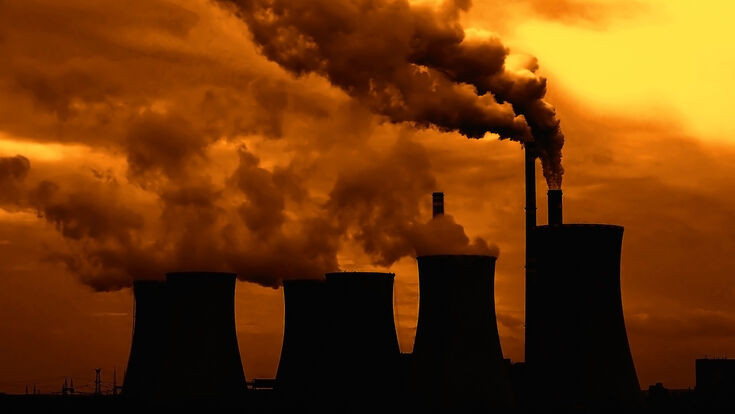Water Pollution : US: EPA to implement tougher wastewater regulations for coal industry

The Environmental Protection Agency (EPA) will impose stricter wastewater disposal standards on coal-fired power plants.
With this, the Biden administration is rolling back a cornerstone of Trump era legislation. In the past year, weakened wastewater rules had led an increase in toxic water pollution.
Wastewater is generated when coal plants rinse their filters to catch pollutants from smokestacks. Said wastewater is then discharged into rivers and lakes, often ending up in drinking water.
The Obama administration had therefore required coal plants to treat wastewater via modern filtration methods to eliminate toxic metals such as mercury, arsenic and selenium from its liquid waste. These pollutants are known to negatively impact not only the human brain, nervous as well as reproductive system but also the marine environments exposed to them.
The more stringent standards are set to apply to 100 coal power plants though the proposed changes are still a few years in the making-according to an EPA official, the final set of regulations will be completed by late 2023 or early 2024.
Brett Hartl, government affairs director at the Center for Biological Diversity, notes, however, that actual enforcement of the new rules may take even longer.
"Oftentimes in these rules, the agencies often have a compliance phase in period," Hartl said. "It may not be implemented by 2025 or 2026. We're stuck in a world where really important protections for people are being slow-walked and that's just not sufficient."
In the meantime, the weakened wastewater regulations currently in place allow for further groundwater pollution.
High fines
Past April, a Canadian federal court ordered Trek Resources Limited to pay a $60 million fine for its pollution discharges that harmed fish in Montana and Idaho as well as killed most fish in nearby waters in Canada.
The company was found guilty of discharging copious amounts of selenium and calcite into marine environments. The former has been proven to cause reproductive damage in fish and other animals whereas the latter is responsible for blocking the growth of plants and insects that serve as food source to fish.
US President Joe Biden has instructed all federal agencies to review all rules issued in the Trump era as well as cross-check them to see whether or not they align with the new administration’s policy to “listen to science, improve public health and protect the environment, [ensure] access to clean air and water, [limit] exposure to dangerous chemicals and pesticides and [hold] polluters accountable”.
Six years ago, wastewater policies were tightened after an AES-PR power plant in Puerto Rico-one of the largest coal ash operators in the US at the time- generated 300, 000 tonnes of coal ash, exposing local residents to its toxic nature. Coal combustion residue is a carcinogenic substance, exposure to it being particularly worrisome considering the fact that the burning process serves to concentrate the heavy metals contained in coal ash.
In 2017, former President Donald Trump overturned the tightened rules adopted in 2015, at a time when former coal lobbyist Andrew Wheeler headed the EPA. Wheeler initially ordered revisions to the policy, seeing fit to exempt the construction industry from coal ash volume restrictions. He also decreed that facilities storing coal ash only need to conduct safety demonstrations or assessments when the ash is just 5 feet from sensitive or dangerous areas like floodplains, sinkholes or groundwater supplies.
So far, the ESA’s revamped regulations has met with support, though some parties such as Julian Gonzalez, legal counsel for Earthjustice, are concerned about the long wait till the new rules will be imposed.
“Faster and more effective action is needed to finally address the pollution from this industry because the damage done by the Trump administration will remain in our ecosystems and communities for years,” he said.
